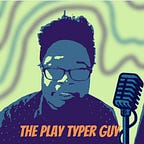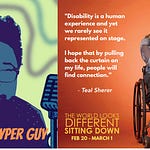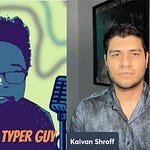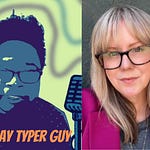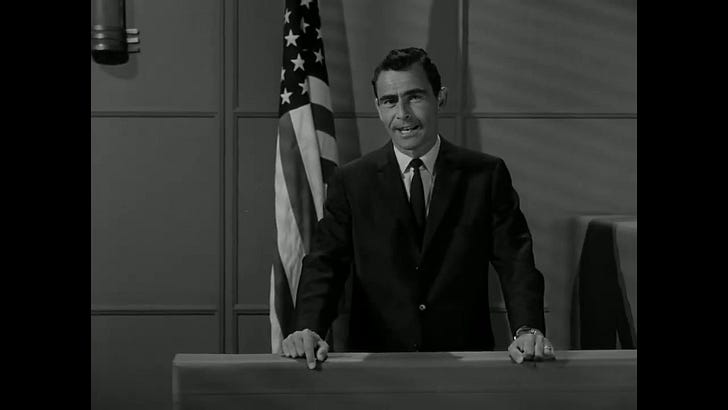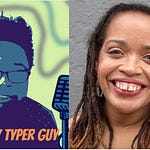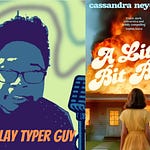Emily Taylor is a professor at Presbyterian College in Clinton, South Carolina. She’s author of the newsletter, Hot Feminism: Letters from South Carolina, and she’s covered the fall-out from South Carolina’s post-Roe abortion ban.
We had a great conversation about reproductive freedom, local politics, and a state we both love. Download the podcast above and/or watch the YouTube video below. Don’t forget to like, share, and subscribe!
Transcribed excerpts from our conversation:
SER: So tell tell folks about your your newsletter, Hot Feminism: Letters From South Carolina.
EMILY TAYLOR: So I started it almost two years ago now after Roe fell, largely because I have two little kids and I wanted to do more activism in the state, but had to kind of do it from home.
I’m an English professor by training. I also direct our women’s and gender studies program here at Presbyterian College, which is a small liberal arts college. So I thought, well, I can write. Maybe I should try to do some more public writing.
I’ve done a lot of academic writing. I really wanted to bring sort of my theoretical focus and training in women’s and gender studies to apply to the local South Carolina context, and how the state was enacting its abortion bans was really the focus of the newsletter kind of at the beginning, to kind of share information with people.
A lot of people in the state either might know some things about local politics or might know things about feminism and queer rights, but there was like this kind of missing Venn diagram where maybe people weren’t understanding things about local politics from a feminist perspective.
So I wanted to bring kind of that focus to the issues that we're facing in Greenville and Laurens County where I teach, but also kind of statewide.
SER: You live in my hometown where my family still lives. South Carolina has always kind of been a Republican state, a conservative state, but after Roe fell, what's happened specifically regarding abortion rights?
EMILY: Yeah, I mean, I think that’s been the hardest. I’ve tried to kind of be conscientious about my privilege, too, because it really, you know, losing a constitutional right as a woman, it’s a real experience to go through!
My area of study for literary studies is the Caribbean, so I work on post-colonial theory. My main academic focus is thinking about global populations of people who have been disenfranchised through colonialism and imperialism.
My mom is a pretty tough Southern lady and … one of the ways she would sort of counsel me growing up was like, well, if you can’t change it, you got to get over it, you know, and you just got to deal.
And then I, my junior high and high school, I lived in the Midwest and I went to school in Iowa, so I have a little bit of Midwestern influence and I was like, all right, don’t sit around and throw a pity party. You still have a lot of privilege as a white woman with a PhD, you know, in the South.
But it has been existentially hard, I think, as someone who’s had children to know how much women’s lives are at risk because it’s not just about access to abortion.
Many large portions of the state are maternal health care deserts, which was already happening before Roe. There was already an OB-GYN shortage that has a lot to do with the problems of our health care system.
But after Roe, clearly OBs don’t want to move here … the penalty right now for South Carolina law is if you perform an abortion after six weeks — there’s some bullshit exceptions, but they don’t really apply or work, you know — it’s a felony offense.
We’re also the only state in the country that criminalizes women’s self-managing abortions. I’ve been trying really hard in the newsletter to remind people if you’re going to get abortion medication, you know, obviously do what you need to do for yourself, but if you get caught taking it, then you can go to jail for two years in South Carolina, and it’s not an idle threat.
Actually, a Greenville woman, this was last year, was arrested for taking abortion medication. She was 25 weeks pregnant and miscarried — the abortion was successful. She went into the hospital because she was having complications and she told the medical staff that she had taken the medication. They reported her to the police, and she was Black.
The women who are most vulnerable to being charged with self-managing abortion are going to be people who … have already historically been prosecuted, especially in the South under chemical endangerment laws. Those have already been on the books.
Alabama’s real rabid about prosecuting women under those laws right now. There was this whole Dragnet operation. Michelle Goodwin writes about it in one of her books.
There’s a dragnet operation … in the 90s where they drug tested women without their consent, pregnant women who had gone in to deliver, and then they arrested them, took away their babies, like the whole thing, right, under drug charges.
And so pregnant women have already been criminalized. It already has a long history in the state. But under these bans once Roe fell, those protections against self-managing abortion or against seeking an abortion, those penalties have gotten a lot more severe and kind of scary.
It makes me worried for my students. They don’t typically have, depending on where they went to school, they don’t typically have great sex education. They don’t always know the resources that are available to them. But also if they’re on their parents’ insurance, they might be scared to seek out prescriptions for birth control.
So there’s three Planned Parenthood clinics in the state, but the closest one is over an hour away from campus. There’s just a real medical emergency.
In Laurens County, where the college is, the hospital closed their labor and delivery ward. So there’s nowhere to deliver a baby in this county. So, if you’re pregnant and you go into labor, you have to drive almost an hour to get to a hospital, which as someone who’s had two children by C-section, you know, it just really terrifies me like about the lives that are at risk, both the infant and the mother … people who are trying to have babies.
So it’s both about accessing abortion care, but also about just accessing obstetric care, even gynecological care … women just don’t have any kind of equal health care access in the state but I think also nationally … it’s worse here and it’s worse here for poor women and women of color but it’s a national problem. I think the hardest thing for me is just to know that women are at risk of dying because of these laws and just that kind of worry.
Please go subscribe to Emily Taylor’s Hot Feminism: Letters From South Carolina.


